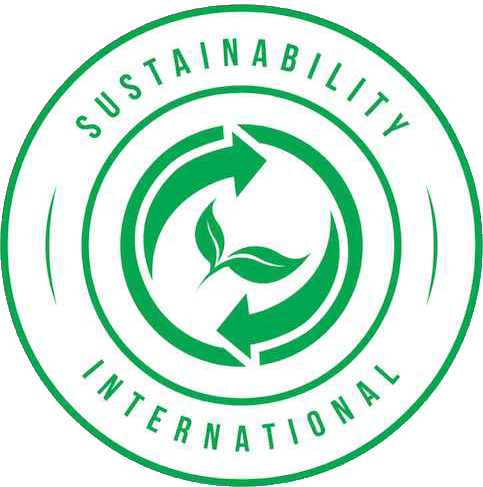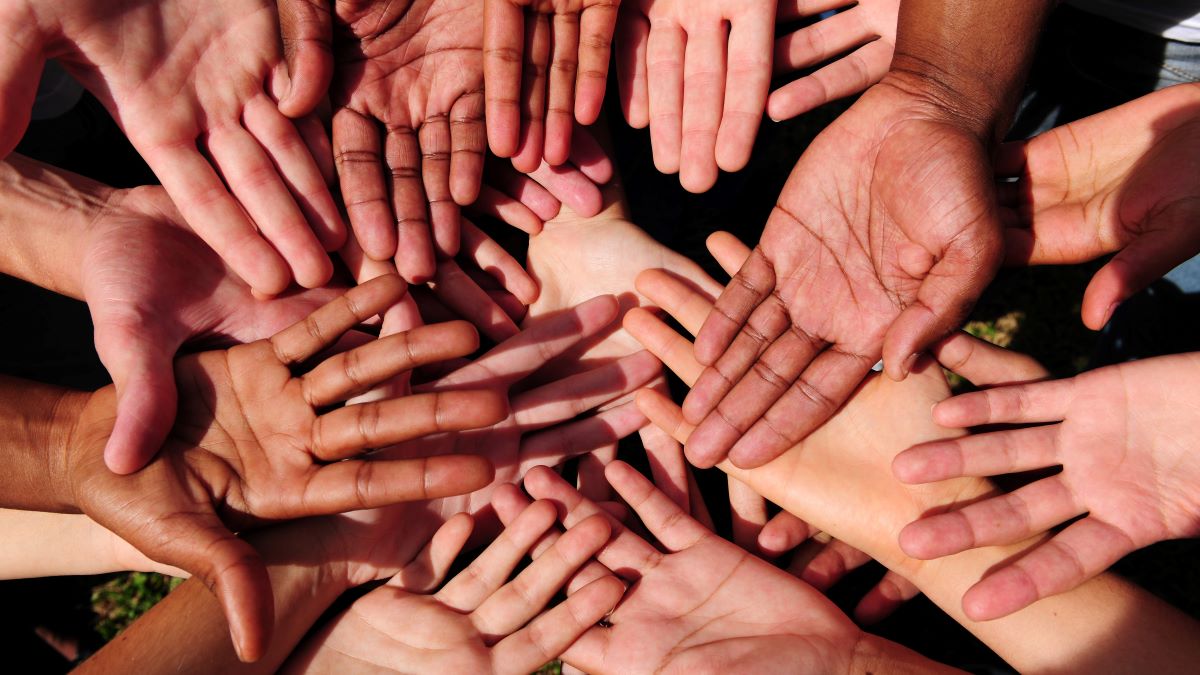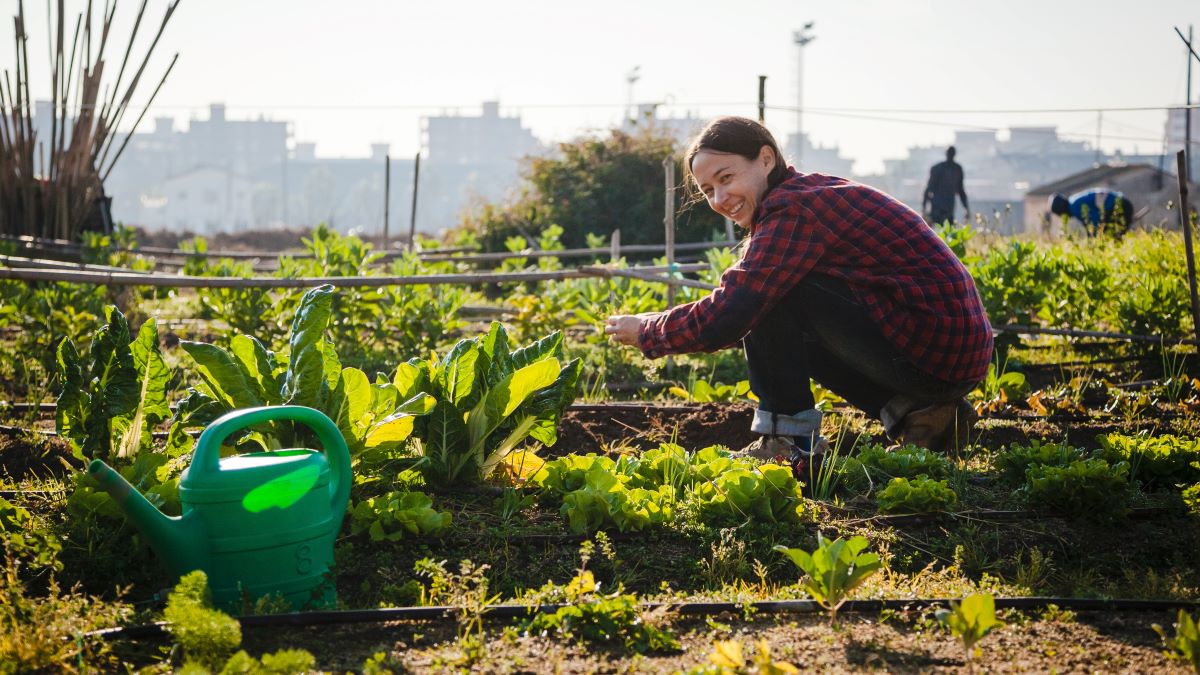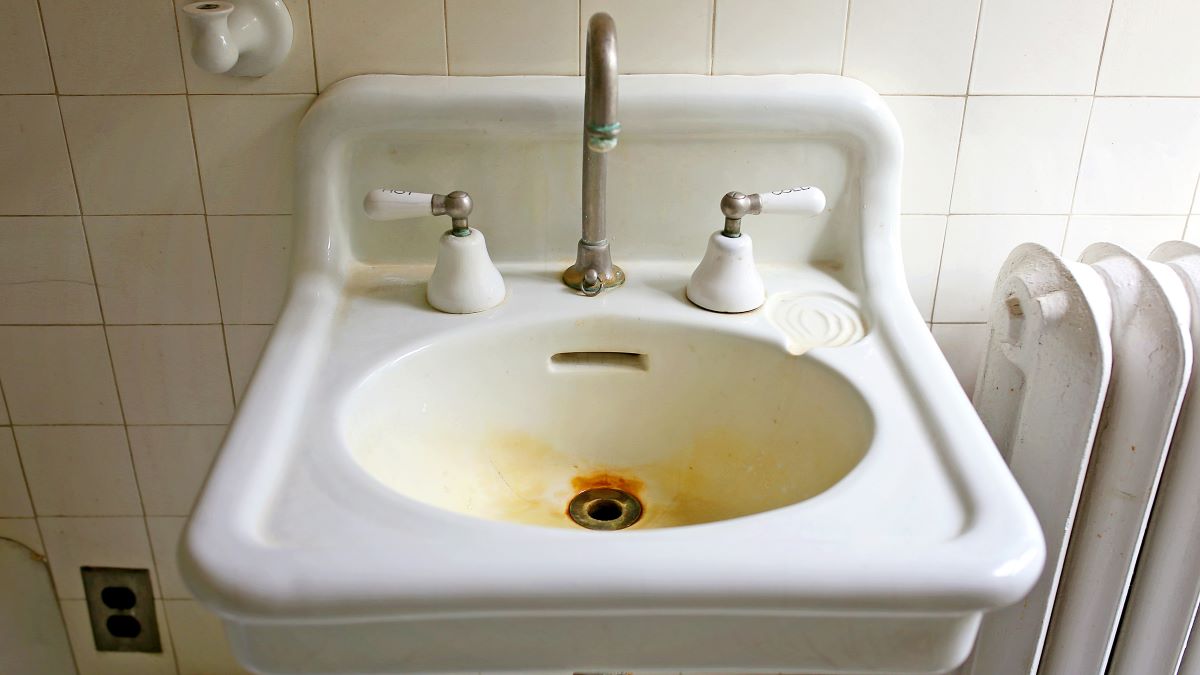Recycling isn’t the same as it used to be. A few years ago, China accepted much of the world’s plastic, textile, and paper recycling. But in 2018, China tightened restrictions on what it would accept due to the high level of contaminated material sent by the U.S.
Now, it’s time for the United States to take responsibility to recycle these streams of waste domestically in order to improve the “materials security” of the nation. That means keeping and processing more recyclable material inside the U.S., which will also reduce the carbon footprint of the current approach to recycling.
In the United States, plastic recycling is becoming a challenge, especially number 5 plastics. We’ve collected a few solutions to help you keep these plastics out of the landfills.

What Are Number 5 Plastics?
The recycling symbol on the bottom of a plastic product does not necessarily indicate that the item can be recycled. That number surrounded by chasing arrows is a resin identification code and tells users what kind of plastic they’re holding.
The number 5 with the recycling symbol indicates polypropylene, often just shortened to PP.
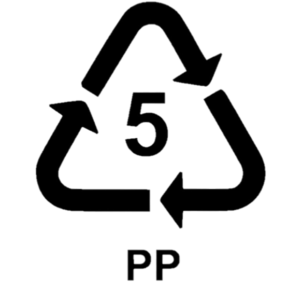
The resin identification code for polypropylene, commonly known as number 5 plastic
This plastic type is particularly hard and heat resistant. It’s often used in prescription medicine bottles, yogurt cups, hummus tubs, single-use cutlery, and some packaging for personal care products like deodorant, lotion, or shampoo. Lids of single-use drink bottles are often also made of number 5 plastic as well as a great deal of single-use laboratory and medical supplies at hospitals, clinics, and labs.
Number 5 plastics were widely accepted in both curbside and drop-off recycling centers before China’s National Sword policy was introduced in 2018. That is when China stopped accepting our plastic waste for recycling.
Recycling Mail-in Programs
Currently, there a few mail-in options for recycling polypropylene. Do check with your local solid waste district to check local options in your region before going to this effort and expense.
Gimme 5 Program
The Gimme 5 program is run by Preserve, a company that makes fully recycled plastic home and kitchen goods. Formerly, Preserve offered recycling drop-off locations for polypropylene at Whole Foods stores but discontinued the program in 2019. A limited number of stores still accept plastic “disposable” cutlery only. Preserve now asks interested recyclers to mail in their number five plastics. They welcome medicine bottles, yogurt containers, hummus tubs, and more. Preserve also closes the lifecycle loop with their mail-in toothbrush takeback program.
Note: During the COVID-19 crisis, Preserve has had to temporarily pause their mail-in recycling program and toothbrush takeback program. See what kinds of number 5 plastics they accept and save your plastics to mail in when pandemic restrictions have lifted.
Matthew 25: Ministries
The international humanitarian aid and disaster relief organization Mathew 25: Ministries accepts clean, empty pill bottles. They welcome prescription medicine bottles as well as small pill bottles that may be too small to recycle curbside. The ministry reuses bottles in countries where such supplies are limited and recycle those they cannot use.
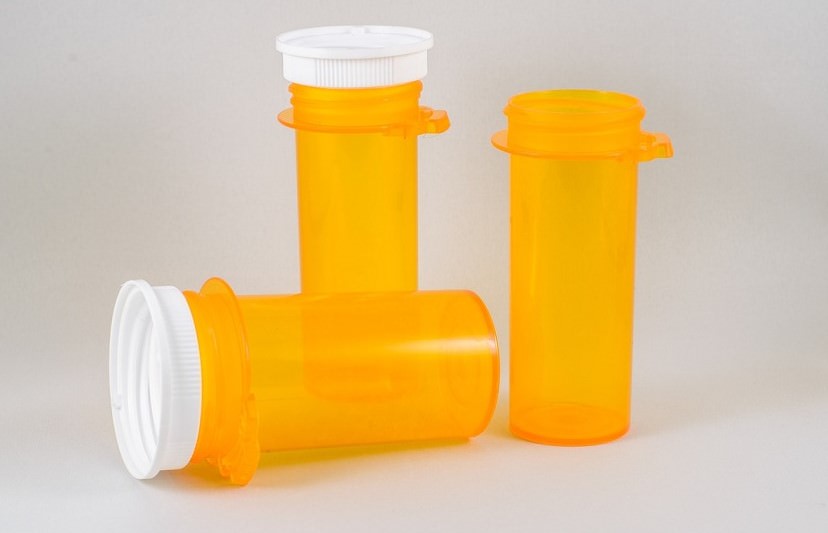
Many prescription bottles are made from number 5 plastics. Image by Bob Williams from Pixabay
TerraCycle
The giant in recycling the unrecyclable arena is TerraCycle. This company’s motto is “eliminating the idea of waste” and they have programs that allow you to recycle almost any type of waste.
TerraCycle does not have a recycling program specifically for number 5 plastics, so you’ll have to hunt around their website for the best solution. There are free recycling programs as well as Zero Waste Boxes, which can be filled with plastic and mailed to Terracycle, that you must pay for. If the bulk of your number 5 plastics come from a specific brand, check to see if there is a Terracycle brigade program available that allows you to recycle the products for free.
Simply keeping plastics separate makes a big difference to the success of the recycling process. Consider ordering a kitchen separation box or boxes for specific items like personal care products, plastic packaging, or vitamin bottles (which also accepts additional medicine packaging) for a not-so-small fee.
Keeping Number 5 Plastics Out of the Trash
We’re experiencing a plastics crisis in the United States and around the world. We encourage you to do what you can to eliminate plastic waste. One good place to start is to avoid plastics, like polypropylene, that can’t be recycled in your normal curbside or drop-off location.
If possible, skip the plastic and buy your yogurt in bulk or in glass containers — or make your own! Order a three-month supply of medicine instead of one, cutting down on packaging while saving a trip to the pharmacy.
You might also consider, Loop, a TerraCycle company that delivers household products and food in reusable containers. When your goods are used up, you send the container back, and they send you a new one. A zero-waste loop! Loop isn’t in every U.S. state yet, but it’s expanding and still adding countries.
Additionally, look for ways to reuse or upcycle your plastic containers. We love the idea of making suncatchers out of clear lids and playing a plastic bottle bowling game. Your number 5 plastic yogurt containers also just make great organizers!
It’s also a good idea to contact the manufacturer of your favorite product and ask them to come up with more earth-friendly packaging.
Feature image by Artur Konik from Pixabay. This article was originally published on May 6, 2020.
The post Can You Recycle Number 5 Plastics? appeared first on Earth 911.
